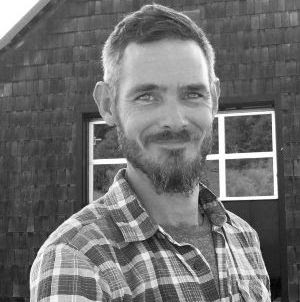What does it mean “to walk the way of Jesus”?

Question & Answer
Q: By A Reader
When people say I want to walk the way of Jesus what should that mean?
A: By Rev. Matthew Syrdal
This is a big question. I suppose nothing is more important than getting curious about Jesus, and what his Way really was.
Become a beginner and forget (nearly) everything you think you know about Jesus. Jesus asked a lot of questions. Ask questions like, was Jesus a Christian? If you read through the Bible thoroughly and the Gospels a few times, what do you notice really mattered to Jesus? How did he live his life? What was his view of money? His relationship to power and privilege? How did he understand (and use) his sacred texts, Torah? The Prophets? Writings? What was his relationship to nature like? From what inner-authority did Jesus speak and act? What’s that about? To whom did Jesus speak — the egoic personality or to the deeper nature — in his encounters with strangers and when teaching his disciples?
There are many ideas and images out there about the way of Jesus. Many great resources, even communities can help shape our faith. But at the end of the day, no one can walk the Way for you, and to some extent at least, you must go it alone. To paraphrase Carl Jung, to pick up your cross and follow Jesus is not to do what Jesus did, rather it is to live your life as fully, as authentically, and as dangerously as Jesus lived his. When people talk about ‘walking the way of Jesus’ can mean justifying our own moralistic and self-righteous attitudes (those of the ‘in-group’, whether we are Bible-believing fundamentalists or progressive eco-feminists) that actually impede our development and spiritual growth (individuation). Moralism in this sense is a survival strategy, like an inner-conformist, victim, or critic that keeps us safe by keeping us (and our image of God) small. ‘
‘Walking the way of Jesus’ should mean putting the journey of individuation before all else. “Whoever would come after me must take up (their own unique) cross… for whoever would save their life will lose it, but whoever would lose their life (for my sake and the sake of the kingdom) will find it.” This journey is cruciform for it always necessitates a death before a resurrection, a collapse of an old way, before opening a new path. It often leads through multiple little deaths, ‘molts’, to who we thought we were, and who we thought God was, or what the world actually is. The way of Jesus offers conflict, fear and pain, but it also leads to the treasure hidden in the field and the pearl of great price!
~ Rev. Matthew Syrdal
About the Author
Rev. Matthew Syrdal M.Div., lives in the front range of Colorado with his beautiful family. Matt is an ordained pastor in the Presbyterian church (USA), founder and lead guide of WilderSoul and Church of Lost Walls and co-founder of Seminary of the Wild. Matt speaks at conferences and guides immersive nature-based experiences around the country. In his years of studying ancient Christian Rites of Initiation, world religions, anthropology, rites-of-passage and eco- psychology Matt seeks to re-wild what it means to be human. His work weaves in myth and ceremony in nature as a way for people to enter into conversation with the storied world in which they are a part. Matt’s passion is guiding others in the discovery of “treasure hidden in the field” of their deepest lives cultivating deep wholeness and re-enchantment of the natural world to apprentice fully and dangerously to the kingdom of god. Matt has been coaching, and guiding since becoming a certified Wild Mind nature-based human development guide through the Animas Valley Institute and is currently training to become a soul initiation guide through the SAIP program.

